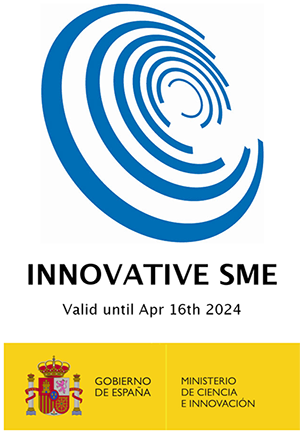- La empresa biotecnológica española Tetraneuron, en colaboración con el Grupo de Investigación del Dr. José María Frade, del Instituto Cajal (CSIC), ha publicado unos prometedores resultados en la prestigiosa revista científica Neurotherapeutics
- La terapia génica basada en E2F4 es capaz de mitigar las principales alteraciones moleculares, cognitivas y comportamentales asociadas a la Enfermedad de Alzheimer mediante un enfoque multifactorial
- La compañía especializada en terapia génica, es la primera empresa española acelerada por Johnson&Johnson Innovation (JLABS)
Madrid, 15 de noviembre de 2021.– Hasta la fecha, los tratamientos utilizados frente a la enfermedad de Alzheimer apenas pueden frenar ligeramente el avance de sus síntomas. Recientemente, la empresa biotecnológica Tetraneuron, en colaboración con el Grupo de Investigación del Dr. José María Frade, del Instituto Cajal, perteneciente al Consejo Superior de Investigaciones Científicas (CSIC), ha publicado unos prometedores resultados en la prestigiosa revista científica Neurotherapeutics usando una terapia génica dirigida a una nueva diana terapéutica, el factor de transcripción E2F4. La expresión de una forma modificada de esta proteína, denominada E2F4DN, en las neuronas de un modelo de Alzheimer, el ratón 5xFAD, es capaz de mitigar diversas alteraciones asociadas a la enfermedad. Los animales tratados presentaron mejoras cognitivas y comportamentales, atenuaron la neuroinflamación, redujeron la tetraploidía neuronal y la producción del péptido beta-amiloide, un conocido agente etiológico de la enfermedad, y revirtieron la pérdida de peso corporal que presenta este modelo, sin que se detecten efectos deletéreos asociados. Su capacidad para modular procesos tan diversos asociados a la enfermedad de Alzheimer hacen de esta molécula un prometedor agente terapéutico para su administración en humanos. En la actualidad, Tetraneuron está llevando a cabo los estudios de preclínica regulatoria necesarios para entrar en fases clínicas en un futuro próximo.
López-Sánchez N., Garrido-García A., Ramón-Landreau M., Cano-Daganzo V. y Frade JM. (2021). E2F4-based gene therapy mitigates the phenotype of the Alzheimer’s disease mouse model 5xFAD. Neurotherapeutics https://rdcu.be/cBfja
Sobre Tetraneuron
Primera empresa biotecnológica española acelerada por el Centro Europeo de Innovación de Johnson & Johnson, Tetraneuron (www.tetraneuron.com) desarrolla desde hace 10 años una terapia avanzada para la Enfermedad de Alzheimer mediante una aproximación terapéutica centrada en E2F4, una proteína implicada en el origen del mecanismo de patogénesis de esta complicada enfermedad. Con resultados preclínicos alentadores en ratones modelo de EA con un fenotipo agravado de la enfermedad, la compañía apuesta por un acercamiento multifactorial al Alzheimer a través de una terapia génica con la que se espera poder frenar el avance de esta devastadora enfermedad que afecta actualmente a más de 50 millones de personas en todo el mundo. A diferencia de otras estrategias, Tetraneuron aporta desde sus inicios, una visión totalmente disruptiva abordando las causas globales de la patología.
El avance de la terapia génica, actualmente en desarrollo, queda patente en algunos casos de éxito recientes y abre un nuevo horizonte a la posibilidad de curar enfermedades para las que hasta ahora sólo existían tratamientos encaminados a paliar sus síntomas. En esta línea, Tetraneuron está también llevando su visión al desarrollo de productos innovadores en otras enfermedades neurodegenerativas.
Para más información,
Mari Carmen Álvarez (mc.alvarez@tetraneuron.com)
David Mor (david.mor@grupoifedes.com)
www.tetraneuron.com



